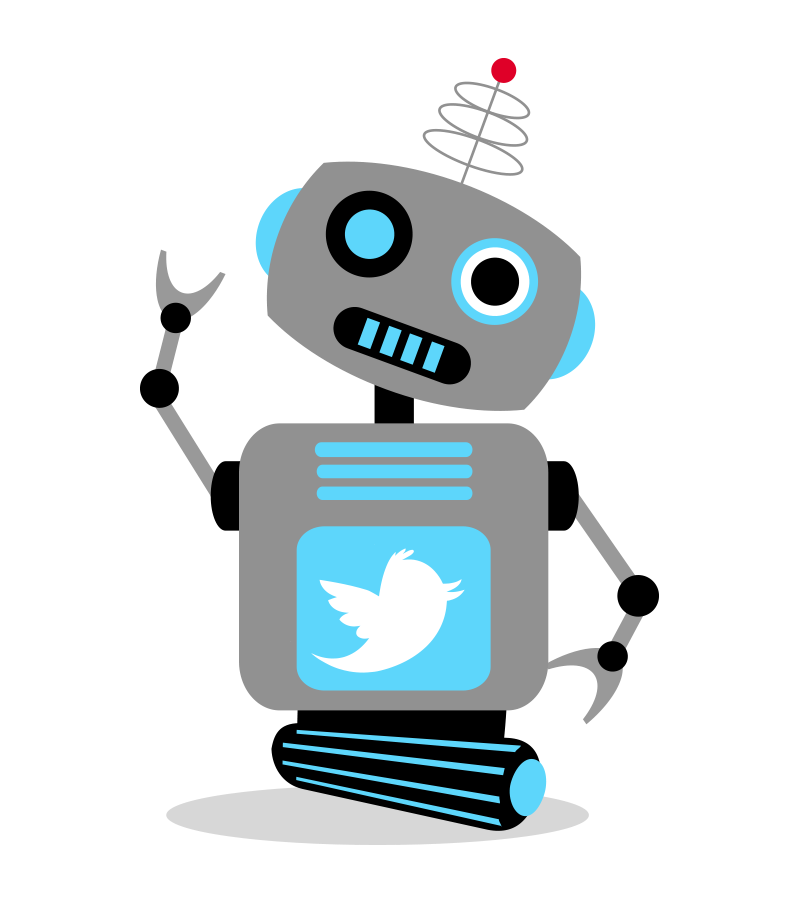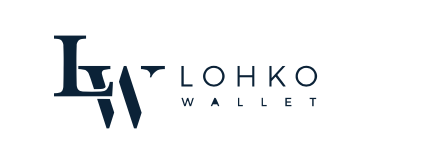Our lives today are very much connected online. We order our food, clothes, electronics, car parts, and even financial and medical services online. We communicate, get our news and lifestyle information online, and due to COVID all learning shifted online. Our personal lives are dependent on our access to the internet. However, today's internet has massive integrity problems making the global human community vulnerable. We can’t verify who we communicate with or what the source of information is. Our digital identities and information are managed by very few oligopolies, and our access to the services we need can be blocked by those very same oligopolies.
For application developers, the current internet does not work either. Their access to consumers can be blocked by their application being removed from a store or by not getting accepted into the application stores even for arbitrary reasons, such as the application's business model not matching the oligopolies’ business models.
We need a new internet that allows users to control their own digital life and allows application developers to control their own digital business. This is what Web 3.0 will solve. In this article series, I will discuss the problems of the current internet and how new technology can be used to solve those problems.
Let’s first very briefly define Web 1.0, Web 2.0, and Web 3.0.
The early version of Web 3.0 has already been introduced and used by the crypto community. Once user experience issues and scalability issues are solved and various technologies merge into one easy to use environment, Web 3.0 will be ready to replace Web 2.0.
What does Web 3.0 enable? We don’t exactly know how its final version will look like, but we are seeing the active innovation stemming from some of the challenges Web 2.0 is plagued with. Blockchain with cryptographic identity and smart contracts, decentralized file management solutions, decentralized domain name management, and progressive web applications are the building blocks of this new internet. This internet will be more user-centric and decentralized. However, those building blocks need to form an easy-to-use and easy-to-develop interface before the new internet can emerge in scale.
To define the earliest version of Web 3.0 and its capabilities, we need to first understand what we need from the future internet, and to understand this, we need to analyze the critical problems of the internet today.
I believe the five biggest problems of the internet today are:
Let’s flesh out some of these problems to paint a clear picture of why these problems need to be solved before we can build sustainable online societies.
The first problem is related to identity management. Unless we can easily verify with whom we are dealing or easily confirm the digital identity of who has provided a particular piece of information, no trust or truth can exist. We are and will be bombarded with fake news and fake deals by fake identities and bots. A recent study showed that nearly half of COVID related tweets in Spring 2020 were from bots and 80% of the top 50 COVID influencers were bots. Each bot progresses its unknown agenda.

To solve Problem 1, we need something which will enable us to identify whether we are dealing with a fake identity, a bot, or a real person. We need the ability to easily verify the background and reputation of the person behind the information. I believe we will need some sort of social curation solutions connected to verified identities. Today, Twitter verifies certain popular users. In the future, we need to find ways to verify all the identities of internet users. Users would need to build their reputation based on their real identity to earn increased visibility to any audience. Everyone should have a voice, but not everyone should be given a megaphone.
Freedom of speech is one of the most valued rights in democracies. Everyone has a right to say their opinion. However, with the internet, this freedom can be easily manipulated and converted into misinformation campaigns. If these campaigns are amplified they can put our societies into flames. Imagine an influential extremist having Twitter and Facebook accounts and hundreds of thousands of bots at his disposal to amplify his message. We don’t want that, but at the same time, we don’t want governments and a few corporations to block our access to freedom of speech without a decision from our legal system.
The rule of law is the very base of any democracy. Social media applications should not become courts saying who has a voice and who doesn’t have one. Unless it is a question of agitating for hate, crime, and violence, which applications should outright ban in my opinion.
At the beginning of January 2020, Twitter suspended the account of financial analyst ZeroHedge as they published a report stating the potential origin of COVID -19. ZeroHedge had, at the time, 670 000 followers and due to the suspension, it lost its access to many of its users. Should Twitter have such power over its users? Possibly yes, as the application platform is owned and curated by them. But I think the real question is if we want Facebook and Twitter to have such power, or should the new internet have social media applications, which are not controlled by any company but the users themselves. With today’s decentralized technologies, this will be possible. However, I believe that those platforms can only exist on a large scale in case each country’s legal system has some degree of control over their internet. I don’t think that it is realistic that various governments would allow social media applications without any accountability related to hate, violence, discrimination, and crime. At the same time, we need to be able to maintain freedom of the press and freedom of speech.
To solve Problem 2, we need something where users control their digital identities overall, but their accounts can be suspended in case there is a court order. Perhaps our court system needs to adapt to the online world so we can quickly develop online court solutions capable of managing cases faster. At the same time, allow the suspended parties to defend themselves.
Blockchain has a great built-in solution for identity management. Rights to approve transactions or changes can be divided among multiple actors. Users can control their data and independently execute transactions (messages, fund movements, information updates, etc.) without middlemen, but rights to suspend the bad actors’ account can be given to the user community, which can vote for suspension or in case of criminal activity an account suspension rights can be given to the digital court system.
Data is the new oil, and it has significant value. The problem is that we as users are the source of this vital resource, yet we don't get a penny from our data nor do we have a say in how our data is being used. The worst thing is that this data is being used to manipulate our thinking and program our purchasing decisions. Most recently, even our political affiliations and choices are being influenced too.
The user data already collected gives marketers very powerful tools that can be used to break the fundamental structures of our societies. Our democratic political systems were not designed for this era where a large group of voters can be profiled, targeted, and manipulated with algorithm optimized messages. Data is being used to finally influence the political power balance of nations. At the same time, foreign powers can use the same tactics of polarizing a country by dividing and provoking their citizens into opposing hostile camps.
The new internet needs to give us back the control for our own data, and give users the power to possibly decide not only how we want to monetize our data but also if we wish to receive data-driven messages. It should be possible to design applications where user data is being encrypted and collected into decentralized storage with the user is given the sole power to decide which part of that data can be used or sold and how.
If you are living somewhere in Europe or in North America, you might think that there is no problem in transferring value safely and easily. Bank and credit card payments work, though transaction fees are quite high. However, with our current system, we are not able to freely purchase, trade, or invest with anyone anywhere in the world without fear of fraud.
This is both a missed global business opportunity and a reason for inequality. Wealth has accumulated into developed economies, but new opportunities may often be found from the developing economies. The new internet should help us to close this gap so that money and investments can safely flow from the wealthy parts of the world into those where there is a lack of capital. Trust is the key to achieve this, and blockchain and smart contracts are exactly the way to achieve this trust. With blockchain-based solutions, we can know who we are dealing with, see where the transaction goes, and program rules for the release of the funds and payments so that we can be sure we get what we pay for.
The global application ecosystem is shared by two oligopolies, Google and Apple. Why is that a problem? First of all, that means that the application ecosystem business model must fit into the business model of Google and Apple. In the case of applications, these are user data monetization and revenue share. Anything that challenges Google’s or Apple’s business agenda will eventually be thrown away from app stores.
Luckily, developer tools for progressive web applications have been developing greatly during recent years. Because of this, we can already see web-based applications with user experience on par with native applications. One example of progressive web applications with a great user experience is Spotify. Web applications offer a way out from Google and Apple’s walled gardens. Web-based applications also have lower user acquisition costs as people don’t have to download them.
Over the next few weeks, I will be diving deeper into each of these challenges to discuss how we could build the new internet, Web 3.0, and how we all could benefit from this new opportunity.
Zippie is developing an easy-to-use and easy-to-develop platform for Web 3.0 applications and users. While Zippie is a web-based solution and not integrated into any hardware, we call it the Zippie Web 3.0 Operating System, as it essentially aims to do what operating systems do: offer an easy-to-develop environment for applications and an easy-to-use environment for users.
The first applications developed with Zippie ready to be launched are charity application MyPlanet and digital asset investor Lohko Wallet.


In case you are a developer or a startup entrepreneur considering to build decentralized applications targeted for the mass market, please contact us and request trial access.